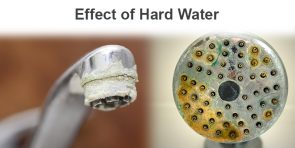How a Water Softener Makes your Clothes Last for Years?
Hard water is not an isolated problem for people living close to coastal areas. The home water supply is also prone to hardness. In India, a large percentage of the population is exposed to hard water, which is used for activities like drinking, cooking, cleaning and washing clothes. Hard water doesn’t affect your health, but when clothes are washed in hard water, it can lead to higher consumption of detergent, dull and stiff clothes.
Effects of Hard Water on your Clothes
Here are some reasons why doing laundry using hard water is a tedious activity.
1. Clothes Don’t Look Clean
The excess calcium and magnesium in hard water render soaps and detergents ineffective. The reason is excess calcium and magnesium prevent water from forming a solution with detergent. This leaves a thin white layer, which is known as soap scum. This scum or detergent curd deposits on your laundry and affects the shine and lustre of clothes. When you use soft water, the detergent forms a solution with water, which attaches to and separates the dirt from the fabric, giving cleaner clothes.
2. Clothes Get Dull & Discolored
Detergent doesn’t dissolve well with hard water, which is why dirt present on your laundry does not separate from the fabric. Additionally, the scum deposits on the clothes make them look dirty and affect their appearance. Hard water causes fading in darker clothes. Light colored clothes get yellow or reddish-brown stains.
3. Bedsheets & Towels Get Rough
In addition to spoiling the appearance of your clothes, hard water also alters the way the fabric feels on your skin. As hard water doesn’t remove detergents effectively, your towels and bed sheets feel scratchy and rough. When you use soft water, it allows proper cleaning and care of your towels & sheets.
4. Skin problems
Special care is necessary for clothes that come directly in contact with your skin. Hard water makes the clothes hard and itchy by leaving behind scum & mineral residue on your clothes. When the spoilt fabric touches your skin, it causes redness, rashes and discomfort. People with sensitive skin or pre-existing skin conditions need to be extra cautious.
5. Detergent Usage Increases
As hard water reduces the effectiveness of detergents, people tend to use more detergent to get a satisfactory, lather-rich wash. Over usage of detergent damages your skin and doesn’t increase the shine of your clothes. Most of the detergent added to the water gets utilized in softening the water to a certain degree. As a result, you end up wasting detergent without any visible effect on your clothes.
How to Increase Life of your Clothes?
Using soft water can go a long way in maintaining your clothes. The traditional methods of water softening don’t provide the desired results and are also time taking. A simple way out of this problem is the installation of a washing machine water softener in your home. These water softeners are specifically designed to cater to laundry needs. Installing a water softener ensures that you use soft water for all purposes. As soft water easily forms a lather, you don’t need to use excess detergent leaving your clothes soft. When you use less detergent, it doesn’t affect the fabric of your clothes and prevents damage. Soft water doesn’t leave any type of scum and washes off easily, which is why your clothes don’t lose their lustre and shine.
Conclusion
Lack of water softeners, especially in places where the supply water is hard, leads to white deposition on your washing machine and your clothes. So, in order to keep your clothes out of harm’s way, install a washing machine water softener; there are multiple options available in the market. You can select one according to your usage and requirement. Before installing a water softener, you can get the water quality tested in your home. To book a free home visit, click here.





